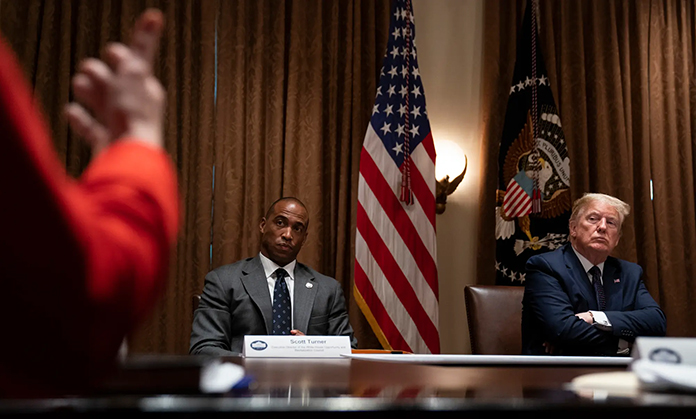Multihousing professionals were relieved when a bill was recently defeated in the Southern California city of San Bernadino. The Illegal Immigration Relief Act Ordinance proposed criminal penalties for apartment owners found to be renting to illegal immigrants. It would have also prohibited the city from operating day-laborer centers and required private centers to ensure that day laborers were authorized to work in the U.S. Police would have been empowered to seize the vehicles of employers soliciting illegal immigrants for day labor, businesses that “aid and abet illegal aliens” would have been denied permits and apartment owners would have been required to file copies of their lease agreements with City Hall to aid officials in assuring they were not renting to illegal immigrants.
One California Apartment Association official responded that the CAA is interested in finding solutions to the illegal immigration issue, but the proposed ballot initiative was unworkable.
California needs a solution that does not place undue hardship, and unfair liability on rental owners and managers. City officials, and property owners and managers cannot take on the role of federal immigration officials without adequate enforcement procedures, safeguards and liability protection.
The defeated initiative would have subjected owners found renting to illegal immigrants to fines of $1,000, notwithstanding Federal fair housing law and practical considerations that place significant limits on owners’ ability to deny housing.
Local associations look for cues from the industry’s national organizations. Terry Fineberg, president of the Arizona Management Association agrees that although illegals are a big issue in Arizona, for the most part, the Association is trying to dodge the issue. “It’s controversial and I don’t believe it directly affects the industry,” said Fineberg. “We need a comprehensive plan to address security at our borders while fully realizing that America requires a manual labor workforce.”
Fineberg adds, “Going after illegal residents where they live is not the place to start. The impracticality of finding, arresting and deporting illegals is overwhelming.”
In December 2005, the U.S. House of Representatives passed HR 4437 that focused strictly on border enforcement and included no treatment of guest workers or temporary residents. The bill would require all employers regardless of size, revenue, or location to electronically verify the work status of all new and existing employees, making it retroactive. According to HR 4437, employers would have to electronically submit identification for each employee to the federal government; in receipt they would get verification of the employee’s immigration status.
This could be an overwhelming mandate. Critics claim the bill is based on a pilot program rife with errors and inefficiencies. NMHC Director of Property Operations, Betsy Feigin Befus is concerned about the implications, as well as the consequence of basing a new program on a flawed pilot program.
The bill also calls for increased fines on employers who violate immigration rules of up to $40,000 per worker, a steep increase up from current fines of $250-$2,500.
In May, the Senate passed its own bill (S 2611) that would require employees to electronically verify employee status, but their version is not retroactive, so only checking new hires would be required. It is distinct from the House bill in that it does address the question of guest workers and undocumented individuals. If enacted, the bill would create the new H-2C visa for guest workers. A separate provision of the bill would allow certain undocumented workers to remain in the U.S. depending on how long they’ve already been here. Through a series of fines, back taxes, English classes, and a background check, an undocumented worker in the U.S. for at least 5 years could eventually gain U.S. citizenship. But this process would take years. An undocumented worker in the U.S. from 2-5 years could apply for “deferred mandatory departure” and eventually citizenship. Anyone illegally in the U.S. for less than 2 years would be ineligible for the program.
Feigin Befus sums it up, “It’s all a big political game. We don’t know if anything will pass this year.”
Since the House and Senate bills remain far apart in terms of immigration reform, a congressional conference has been appointed by the House and Senate leadership to create a compromise bill. A compromise bill would have to be approved by both Houses and then sent to the President for signature. Feigin Befus says, “We’re optimistic, but we’re not holding our breath.”
The NMHC and NAA support comprehensive immigration reform, including border enforcement and a guest worker program, and seeing both components intimately linked. “The industry is not opposed to a phased-in guest worker program,” Feigin Befus explained.














